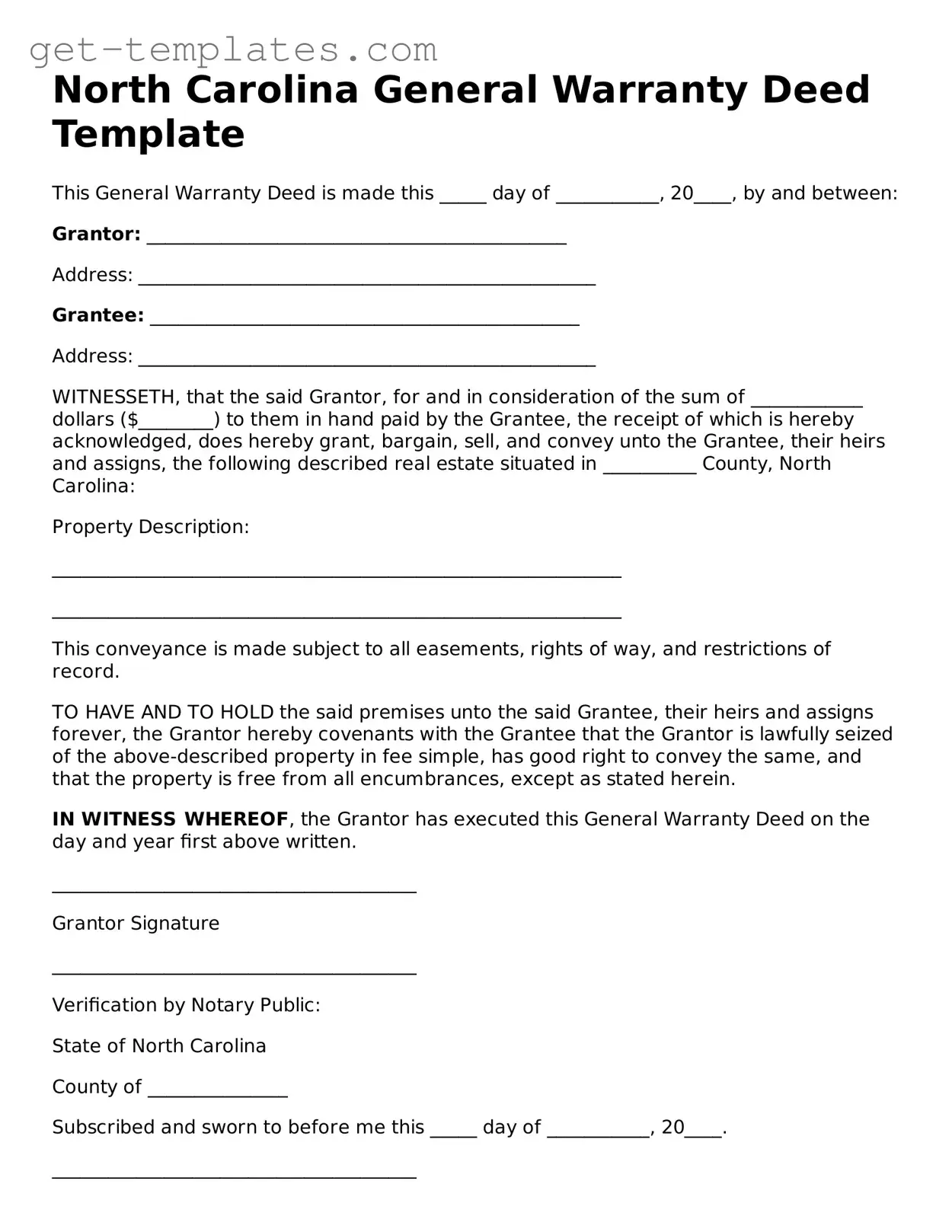Attorney-Approved Deed Document for North Carolina
A North Carolina Deed form is a legal document used to transfer ownership of real estate from one party to another. This form outlines the details of the transaction, including the names of the buyer and seller, the property description, and any terms of the sale. Understanding this form is essential for anyone involved in real estate transactions in North Carolina.
Get Document Online

Attorney-Approved Deed Document for North Carolina
Get Document Online
You’re halfway through — finish the form
Finish Deed online — edit, save, download made easy.
Get Document Online
or
⇓ PDF Form
